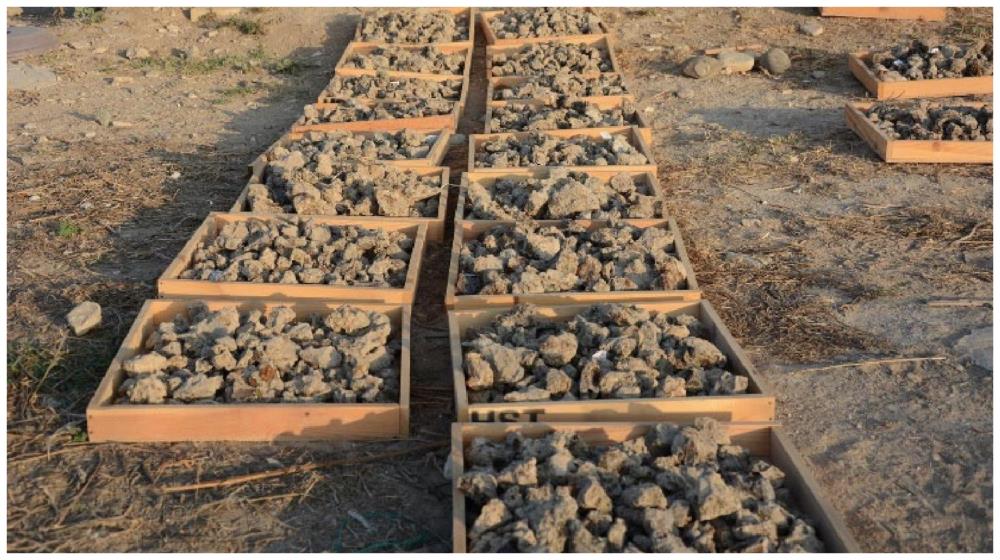A village in Larnaca was one of the most important copper trading hubs of the Late Bronze Age, a recent study by archaeologists at the University of Gothenburg revealed.
According to a paper published in the Journal of Archaeological Science, the strategic location and abundant copper reserves of Hala Sultan Tekke in present-day Larnaca, turned it into a key trading hub in the first period of international trade in the Mediterranean, between 1500–1150 BC.
The excavations revealed that the village was bigger than previously thought, covering an area of between 25 to 50 hectares, while the remains found at the site showed extensive copper production in the form of smelting furnaces, cast moulds, and slag.
“The ore from which the copper was extracted was brought into the city from mines in the nearby Troodos Mountains”, Peter Fischer, leader of the excavations, said in a news release.
The researchers also found huge quantities of imported pottery, but also luxury goods made of gold, silver, ivory, and semi-precious gemstones, which show that the community’s production of copper was a trading commodity in high demand.
This discovery adds further evidence that Cyprus, with a mining history of at least five thousand years, was once one of the most important sources of copper in the world. The red metal played a key role in the evolution of civilisation, contributing to the technological progress of the entire Mediterranean world and beyond.
“The team’s findings, as well as the discovery of the Ulu Burun shipwreck, which was carrying over ten tons of Cypriot copper ingots when it sank off the southwestern coast of Turkey in the late 14th century B.C., reaffirm that Cyprus was a major producer of copper for international trade, mainly during the Late Bronze Age”, Dr Demetris Constantinides, economic geologist and Board Member of Cypriot mining company, Venus Minerals, said.
Cyprus’ history is closely linked to its mines and particularly its copper resources, going back to the Chalcolithic period 3.000 years B.C. Besides, as it is well known, the island gave the metal its Latin name – cuprum. Copper was produced in various areas including Mitsero and Agrokipia, which belonged to the ancient city-kingdom of Tamassos. It could be argued that to the rest of the ancient world, Cyprus was synonymous with copper.
Venus Minerals is at the forefront of the revival of Cyprus’ long and esteemed mining tradition. The company is currently working on a portfolio of projects in the Troodos region, while it will be involved in the development of Cyprus’ first new copper deposit since the early 90s, at Apliki. Cyprus is home to significant untapped mineral deposits – mostly found in tailings left behind by mining companies that suspended their operations after the 1974 Turkish invasion.
“Using efficient and sustainable technologies, modern mining companies can recover these deposits in an environmentally safe and responsible manner, while assisting in the rehabilitation of the abandoned mine sites across the island”, Constantinides added.









